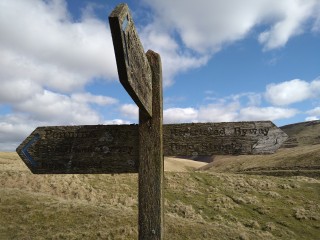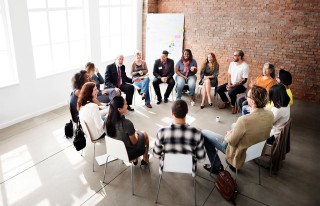News
Welcome to our news section. Our latest news will appear here.
Curiosity II

Yesterday we held a workshop on the subject of Advanced Questioning. In this workshop, one of the things we did was to highlight the need for questions through an exercise. Provided with a scenario, a mediator listened to a client talk about their conflict, but the mediator was not allowed to ask any questions. The exercise itself did not just prove the need for questions, but highlighted the varied reasons why questions can be helpful. But something else emerged from the feedback after that exercise. Several learners commented on how awkward it felt, how being a mediator they are used to asking open questions and as an exercise it felt strange. One of them said “I’m naturally curious and this exercise stopped me from being curious”
I know that I have written before about curiosity and its part in the role of a mediator, but this reflective comment yesterday reminded me how important having that curiosity is in the work of mediation. One of the essential starting points for curiosity, is accepting that we do not know everything. In our mediation training sometimes I say - and I know that this sounds very odd to the ear - that we do not know what we do not know. So often in life and conversations we are faced with choices - choices of what to ask, how to ask and when to ask a question. And often we choose where those gaps in information are, where those areas or topics we need to explore are.
Restorative Practice - trying something different

When we look at restorative practice in Scotland, we find that awareness of the term and access to a restorative service is patchy. This is also true of restorative justice services - in the Scottish Sentencing and Penal Policy Commission report published earlier this month access was described as “fragmented and not universally available”.
In recent years, some progress has been made in developing pilots and best practice, and yet there are still many people who are unfamiliar with the term ‘restorative practice’, let alone knowledgeable about what is involved. Perhaps it may be useful to provide some terminology here:
1) in its most simplest form, restorative practice is a technique for assisting one party to help repair the harm they caused to the other party.
2) restorative justice is restorative practice within the criminal justice system - i.e. where a criminal offence has or has allegedly taken place.
Housing Associations to offer mediation to resolve conflict between residents

Four Ayrshire based Housing Associations have commissioned Sacro’s Scottish
Community Mediation Centre (SCMC), to provide mediation training to staff to enable
them to better resolve conflict among residents. Between them, Cunninghame Housing
Association, Shire Housing, Riverside Scotland and Atrium Homes provide over 7,000
homes in the Ayrshires.
Spotlight on conflict resolution
Spotlight on: Mediation and conflict workshop
I was recently speaking with someone who is about to join us on our mediation training course, and they reflected that – having read the course materials – they realised that mediators don’t make suggestions. This reminded me how little is known about mediation and how at times even when people think they know what mediation is, they can be misinformed.
Community mediation in Scotland began in 1995, with the first service launched in Edinburgh. For over 30 years mediation has been used across Scotland to help neighbours sort out conflicts and to help them develop their own skills in dealing with conflicts more constructively. Our own training has been around for over 25 years now, so why the lack of knowledge and understanding?
New training launched for 2026
New training calendar launched for 2026
We are pleased to announce the launch of our training calendar. For 2026 we have some exciting new workshops to offer, plus our popular and well-respected courses in mediation, conflict resolution and restorative skills. Below are a few highlights.
Mediation ‘taster’ workshop (1.25 hours)
Heard of mediation but not sure what it means? This short workshop explores some of the principles of mediation and outlines the process.
Mediation practice workshops (half day)
For those who have passed our accredited Mediation Skills course, this workshop provides further opportunities for practising skills in a safe and fun environment.

